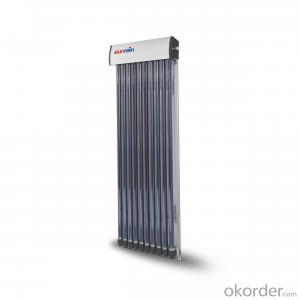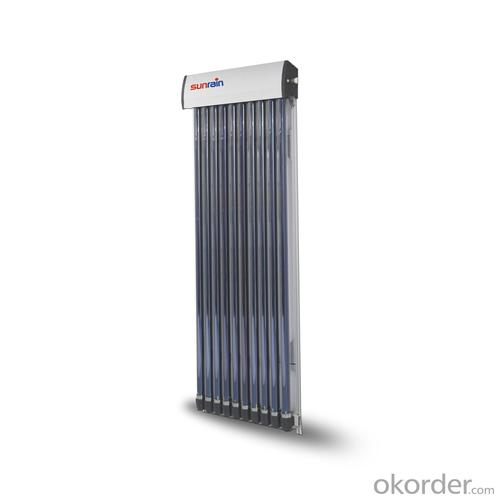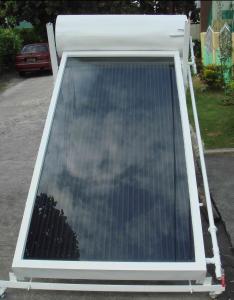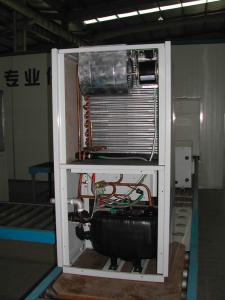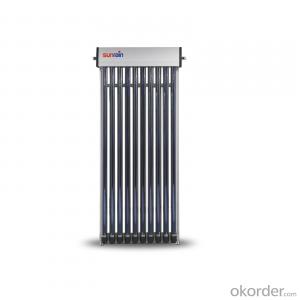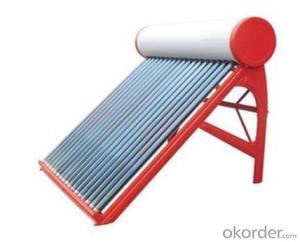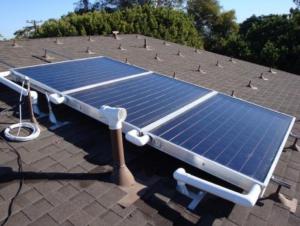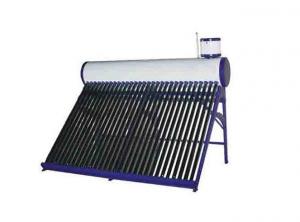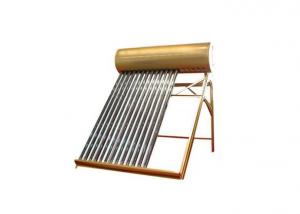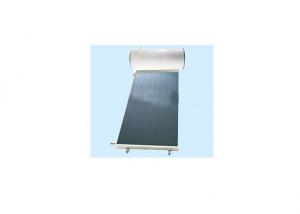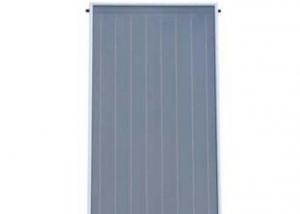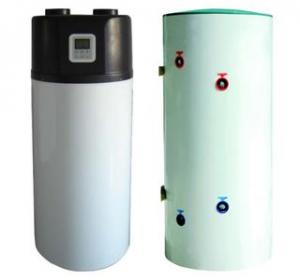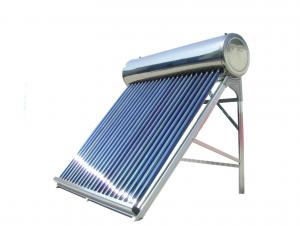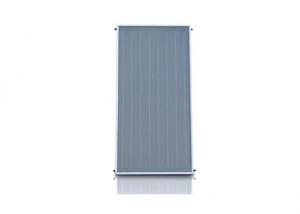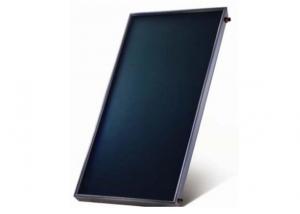CPC Collector Solar Water Heater Above Ground Pool
- Loading Port:
- China Main Port
- Payment Terms:
- TT OR LC
- Min Order Qty:
- -
- Supply Capability:
- -
OKorder Service Pledge
OKorder Financial Service
You Might Also Like
*Excellent performance evacuated tube collectors
* Can be mounted free-standing or on a pitched roof, easy to install, simple roof fixings
* Integrated into building perfectly, any angle installation
* U pipe - offer low maintenance
* No water in the vacuum tubes, no freezing problem in winter, can be used in cold area. It can be still operate in the event of occasional tube breakages.
* 3 years warranty, 20+ years lifespan
* Market leading efficiency/output
* Triple layer selective absorber coating, absorption coefficient >94%
* Evacuated tube outer tube thickness >1.8mm
* Aluminum frame, strong structure, light weight.
* High and constant pressure of polyurethane foaming technology ensure the outstanding insulation quality.
- Q: What is the impact of shading on the performance of a solar water heater?
- The impact of shading on the performance of a solar water heater is significant. Shading reduces the amount of sunlight reaching the solar panels, therefore decreasing the efficiency of the system in converting sunlight into heat energy. It can result in a decrease in the overall heating capacity and slower heating times for the water. Therefore, minimizing shading and ensuring optimal sunlight exposure is crucial for maximizing the performance and effectiveness of a solar water heater.
- Q: How does the water pressure affect the performance of a solar water heater?
- The performance of a solar water heater can be significantly affected by water pressure. How efficiently the water circulates through the system is determined by the water pressure, which in turn affects the overall heating capacity and effectiveness of the solar water heater. Having a higher water pressure enables a faster flow of water through the solar collector, resulting in better heat transfer from the sun to the water. This leads to quicker and more efficient heating, providing a higher temperature of hot water. Moreover, a higher flow rate helps prevent the water from becoming too hot in the collector, as the water is constantly in motion and exchanging heat. Conversely, low water pressure can have a negative impact on the performance of a solar water heater. With a reduced flow rate, the water may spend less time in contact with the solar collector, resulting in inefficient heat transfer and slower heating. This can result in lower water temperatures and decreased overall performance of the solar water heater. In extreme cases of very low water pressure, the system may not function properly at all. It is important to consider that the optimal water pressure required may vary depending on the specific design and components of the solar water heater. It is recommended to consult the manufacturer's guidelines or seek professional advice to determine the ideal water pressure for a particular system. To conclude, water pressure plays a crucial role in the performance of a solar water heater. Higher water pressure allows for faster and more efficient heating, while low water pressure can lead to slower heating and reduced overall performance.
- Q: How does the orientation of the solar panels affect the efficiency of a solar water heater?
- The orientation of the solar panels plays a significant role in determining the efficiency of a solar water heater. The optimal orientation for maximum efficiency depends on the location of the solar water heater and the latitude. In general, solar panels should be tilted at an angle that allows them to receive the maximum amount of sunlight throughout the day. For example, in the Northern Hemisphere, solar panels should be oriented towards the south to capture the most sunlight as the sun moves from east to west. Similarly, in the Southern Hemisphere, solar panels should face north. The angle of the solar panels is also crucial. A solar water heater in a location closer to the equator would benefit from a steeper tilt angle, while locations farther from the equator would require a shallower tilt angle. This adjustment ensures that the solar panels are optimally positioned to receive sunlight at all times of the year. When the solar panels are properly oriented, they can capture more sunlight, leading to increased efficiency. This is because the sunlight falling on the panels is directly converted into usable energy, which is then used to heat the water. A higher amount of sunlight captured results in more energy production, which translates into better efficiency for the solar water heater. However, it's important to note that the orientation of solar panels is not the sole factor influencing a solar water heater's efficiency. Other factors such as the quality of the panels, the efficiency of the heat transfer system, and the insulation of the water storage tank also contribute to the overall efficiency of the system. Therefore, while the orientation of the solar panels is crucial, it should be considered in conjunction with other design and operational factors to maximize the efficiency of a solar water heater.
- Q: Can a solar water heater be used in areas with high levels of electromagnetic interference?
- Yes, a solar water heater can be used in areas with high levels of electromagnetic interference. Solar water heaters primarily rely on the sun's energy to heat water, so they are not significantly affected by electromagnetic interference. However, it is advisable to ensure proper installation and grounding of the system to minimize any potential interference.
- Q: How does the orientation of solar panels affect the performance of a solar water heater?
- The performance of a solar water heater is significantly influenced by the orientation of solar panels. To achieve ideal performance, it is recommended to directly face the panels towards the sun. This ensures maximum exposure to sunlight, resulting in enhanced energy absorption and conversion. Considering that the position of the sun changes throughout the day, it is important to optimize the orientation of solar panels for utmost efficiency. In the northern hemisphere, panels should be oriented towards the south, while in the southern hemisphere, they should face north. This allows the panels to directly capture sunlight, ensuring optimal performance. Improper orientation of solar panels leads to reduced efficiency. For instance, if the panels face east or west, they will not receive the same amount of direct sunlight as those facing south or north. Consequently, this results in lower energy absorption and conversion, leading to reduced performance of the solar water heater. Additionally, the performance of solar panels is also influenced by the tilt angle. The ideal tilt angle depends on the latitude of the installation location. Adjusting the tilt angle enables panels to effectively capture sunlight, particularly during the winter months when the sun is lower on the horizon. To summarize, the orientation of solar panels is crucial for maximizing the performance of a solar water heater. By properly aligning the panels towards the sun and adjusting the tilt angle according to the latitude, higher energy absorption and conversion can be achieved, ultimately ensuring optimal efficiency and performance of the solar water heater.
- Q: Are there any health benefits associated with using a solar water heater?
- Yes, there are several health benefits associated with using a solar water heater. One of the primary benefits is the reduction in exposure to harmful chemicals and toxins found in traditional water heating systems. Solar water heaters do not require the use of fossil fuels, such as natural gas or oil, which can release harmful emissions during the heating process. By utilizing clean and renewable solar energy, the water heated by solar water heaters is free from these pollutants, resulting in improved indoor air quality and reduced risk of respiratory problems. Additionally, solar water heaters can help to prevent the growth of harmful bacteria and microorganisms in the water supply. Traditional water heaters often store hot water in tanks, providing a suitable environment for the growth of Legionella bacteria and other pathogens. Solar water heaters, on the other hand, heat water on-demand, minimizing the risk of bacterial contamination and reducing the chances of waterborne diseases. Moreover, using a solar water heater can have positive effects on skin health. Traditional water heating systems often rely on hard water, which contains a high concentration of minerals like calcium and magnesium. These minerals can dry out the skin and hair, leading to issues like dryness, itchiness, and dandruff. Solar water heaters, however, can be equipped with water softening systems that remove these minerals, resulting in softer and healthier skin and hair. Finally, the use of solar water heaters can contribute to overall mental and emotional well-being. By reducing reliance on non-renewable energy sources, individuals can feel a sense of satisfaction and pride in their contribution to a healthier and more sustainable environment. This positive mindset can have a cascading effect on mental health, improving mood, reducing stress, and promoting overall well-being. In conclusion, the use of solar water heaters offers a range of health benefits, including reduced exposure to harmful chemicals, prevention of bacterial contamination, improved skin health, and positive impacts on mental well-being. By harnessing the power of the sun, solar water heaters provide a sustainable and health-conscious solution for heating water.
- Q: What are the requirements of domestic solar water heater? What are the advantages and disadvantages of solar water heater
- Shortcomings:1 large area on the floor of the installation of insulation;2 hot water pipeline for more than ten meters, each use to waste a lot of water;3 the need for a full day of sunshine in order to heat the water, when the weather is good can only ensure that there is hot water at night, during the day and at night there is little hot water available, can not guarantee the user 24 hours hot water supply, poor comfort;4 solar water heater lighting board must be installed on the roof, both large and heavy, but also affect the construction of the beautiful (the more obvious the more high-end residential areas), but also easy to damage the roof waterproof layer;5 photoelectric complementary, in fact, can not be properly implemented.6 now more than 99% of the market are very backward, non pressure type, commonly known as the water". The water, the water is only a water pipe, the use is very inconvenient, simply can not talk about comfort.
- Q: Can a solar water heater be used in areas with freezing temperatures?
- Yes, a solar water heater can be used in areas with freezing temperatures. However, it requires proper installation and insulated piping to prevent freezing and damage. Additionally, antifreeze or a glycol solution can be used in the solar collector loop to protect the system from freezing.
- Q: Do solar water heaters require regular maintenance?
- Yes, solar water heaters require regular maintenance to ensure optimal performance and longevity. This includes checking and cleaning the solar collectors, inspecting and repairing any leaks or damages, flushing the system to remove sediment buildup, and examining the overall efficiency of the system. Regular maintenance helps to maximize the efficiency of the solar water heater and prevent potential issues.
- Q: How does the efficiency of a solar water heater compare to an electric water heater?
- The efficiency of a solar water heater is generally higher than that of an electric water heater. Solar water heaters use the energy from the sun to heat the water, whereas electric water heaters rely on electricity. Solar water heaters can take advantage of free and renewable energy, resulting in lower operating costs and reduced environmental impact. Electric water heaters, on the other hand, rely on electricity generated from various sources, which can be more expensive and less environmentally friendly. Therefore, in terms of efficiency, solar water heaters are a more sustainable and cost-effective option.
Send your message to us
CPC Collector Solar Water Heater Above Ground Pool
- Loading Port:
- China Main Port
- Payment Terms:
- TT OR LC
- Min Order Qty:
- -
- Supply Capability:
- -
OKorder Service Pledge
OKorder Financial Service
Similar products
Hot products
Hot Searches
Related keywords
